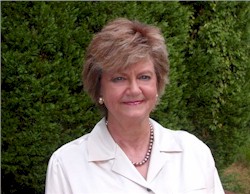|
|
|||||
|
Be Neutral |
|||||
|
Case Watch: For Mediators
The following case analyses are part of a
regular series we publish to help neutrals broaden their knowledge of
rulings of Georgia’s appellate courts that may affect your practice.
Remember: mediators should not give legal advice or opinions
Review of
Jett v. Jett, S12A0075, decided
May 7, 2012, appeal to the Georgia Supreme Court of a ruling by
Judge
Deborah C.
Benefield,
Clayton
County
Superior Court,
and
Scherer v. Testino, S12A0222, decided May 7, 2012, appeal to the
Georgia Supreme Court of a ruling by Judge
J. David
Roper,
Columbia
County Superior Court.
CaseWatch for
Mediators: The courts were just trying to help. In Jett v. Jett, and Scherer v. Testino, the trial courts tried to resolve unanticipated problems arising from the parties’ final divorce agreements. Did they go too far? In Jett, the final divorce agreement did not anticipate that Husband would buy another house for $315,000 before he did what he had agreed to do: either sell or refinance the marital home, and then pay Wife half of the equity. No surprise: he couldn’t sell the marital home, and his new post-marriage indebtedness negatively impacted his debt-to-income ratio thus disqualifying him from refinancing the marital residence. The trial court found Husband in contempt and put him in jail for five days. The trial court also ordered Husband to: liquidate all accounts and property and pay down the mortgage at issue; be responsible for any deficiency as a result of the sale of the marital residence; and hold Wife harmless. None of these provisions were in the parties’ divorce agreement, but the trial court created them to carry out the court’s understanding of the parties’ intent. On appeal, the Supreme Court also looked at the parties’ intent and reached a different conclusion: that their agreement anticipated that marital assets and liabilities be distributed equally between Husband and Wife. Therefore, the Supreme Court ruled, the trial court had impermissibly modified the agreement by shifting the burden of all risk to Husband.
The
interesting part of this case for mediations, however, is the dissent from
then-Chief Justice Carol Hunstein. She noted that the trial court was
attempting to enforce the agreement by imposing reasonable conditions that
required Husband to carry out his contractual obligation. She further
stated that since the house did not sell and could not be refinanced due
to Husband’s buying a second home, the trial court properly ordered him to
pay down the mortgage to determine whether refinancing would be possible,
and to indemnify Wife for any deficiency. Justice Hunstein concluded that
the trial court was correctly trying to place the parties in the position
that they would have occupied had Husband timely complied with the
settlement agreement. It was her belief that the appeals courts should
not take away the discretion of the trial court to enforce its own
contempt orders, except by requiring jail time. She summarized her
position thusly: “In the end, the parties to a divorce action would be better served by permitting trial courts flexibility in interpreting the settlement to carry out the couple’s intent, without having to resort to incarceration of the contumacious party.” What a great argument for mediators to convince parties to consider contingencies if they can’t or don’t comply with terms of their divorce agreement. If they don’t agree on how to handle unanticipated problems, it’s clear from these cases that the trial judge will determine how to carry out their intent. The court’s solution might surprise the parties, and not always pleasantly. Scherer v. Testino is another appeal – which the Supreme Court decided on the same day as Jett – that alleged improper modification of a divorce agreement by the trial court. In the original divorce agreement, Wife Scherer was to keep a business checking account open until a time certain, but the trial court ordered her to keep it open for an indefinite period “until all claims filed were finally resolved.” She did not. As in Jett, one of the parties (Wife this time) went to jail for contempt. She was also ordered to pay $52,035.60 in damages plus $33,194.55 in attorney’s fees for the privilege of doing so. The Supreme Court used this rule as a basis for reviewing the trial court’s action: “The distinction is whether the clarification is reasonable or whether it is so contrary to the apparent intention of the original order as to amount to a modification.” It concluded that Scherer had the right to close the checking account, so it reversed the trial court and its grant of $85,230.15 for damages and attorney’s fees. All in all, a worthwhile financial decision of Wife to file the appeal. The trial court rulings in both of these cases were the result of unanticipated problems, which are the bane of agreements. In Jett, the husband incurred a major debt, and in Scherer the transfer of ownership of the parties’ business did not occur as stated. Had the parties in these cases given some more thought to such possible problems, they might have saved themselves lots of time, money and aggravation. Some contingencies can’t be anticipated, of course. But by insisting that the parties contemplate the standard questions of who, what, why, where, when – and what if – we mediators can help them avoid having the trial court come up with its own answers. I know this can be difficult when parties are weary from thinking about their present problems. Often they have no energy left to think about possible future issues. Your job is to convince them that the investment will be worth the peace of mind later. So take a break, give them some sugar, and when they reconvene ask them if they would rather spend some time now thinking about “what ifs” or be held in contempt, pay fines and go to jail later.
|
|||||

